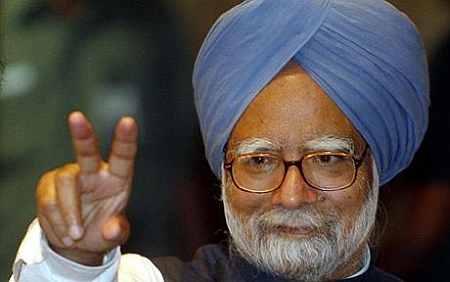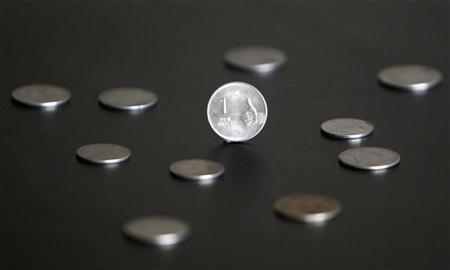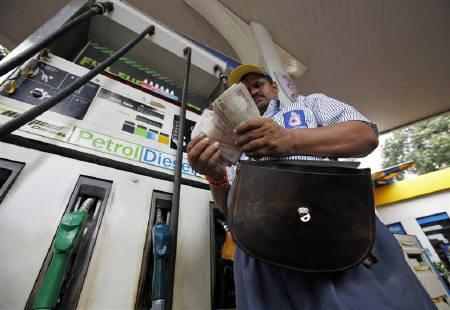
What Prime Minister Manmohan Singh said at the inauguration of the nine-million-tonne Guru Gobind Singh Refinery at Bathinda last week provides further proof, if any were needed, that the United Progressive Alliance (UPA) government continues to suffer from policy paralysis.
Worse, it now seems to have become increasingly unmindful of the deep economic crisis to which the Indian economy stands exposed by its failure to implement policies that, ironically, its top leaders publicly acknowledge as correct and sensible.
The prime minister, more than anyone else in the UPA, should be aware of the disastrous implications of the government's inability for several months to allow an increase in prices of petroleum products in keeping with the rise in international crude oil prices.
...

If the government's twin-deficit problem -- a widening current account deficit along with a large fiscal gap -- has got worse, it is largely because the UPA has made little progress in dismantling the administered pricing mechanism for the petroleum sector.
Yet Dr Singh's statement last Saturday seemed to ignore the importance of retail price reforms in the petroleum sector. While explaining the political rationale for insulating the common man from the impact of rising oil prices, he simply underlined the need for "rationalising" the prices of various petroleum products to relieve the government of the burden it carried at present.
The mild exhortation for an increase in prices -- a decision that the UPA has chosen to postpone for the last several months for fear of a political backlash -- was a surprise because missing from it was the earlier resolve to "bite the bullet", so evocatively expressed immediately after the presentation of the Union Budget for 2012-13 almost six weeks ago.
...

A modest allocation of about Rs 40,000 crore (Rs 400 billion) for petroleum subsidy for the whole year was not enough to compensate the oil marketing companies for their under-recoveries on the sale of petroleum products at prices fixed by the government, and the prime minister had bravely said that it was time for the government to bite the bullet on that issue.
In other words, the prime minister had prepared the nation for an increase in petroleum product prices.
However, no such decision has been taken -- although several weeks have elapsed since then and the finance minister, along with his chief economic advisor, has also reiterated the government's desire to take tough measures.
...

On the other hand, oil marketing companies have been gently persuaded not to increase petrol prices since the beginning of this year, even though they are theoretically free from government control. Even for cooking gas and diesel, the last price increase took place in June 2011.
Given the government's reluctance and political inability to take tough decisions, no increase in petroleum product prices is likely until the Budget session of Parliament concludes on May 22.
That can raise under-recoveries of oil marketing companies to a record level of Rs 2 lakh crore for the full year. Of the Rs 40,000 crore of subsidy provided for in the Budget, more than a third has already been used up in the first month of the current fiscal year. If the government's indecisive phase continues a little longer, the entire amount will be consumed in the next two months.
The government has to make up its mind. Mere articulation of a desire to take tough measures is not enough. It needs to implement those measures and prevent the adverse consequences of a higher fiscal deficit.